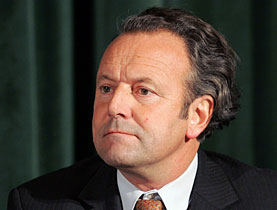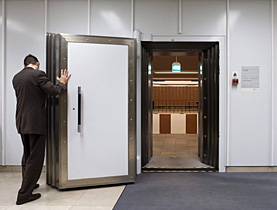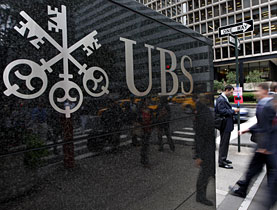Bank secrecy faces coordinated global assault

Swiss banking secrecy could soon come under unprecedented pressure as the world's most powerful countries meet to discuss tax havens at the G20 summit in April.
The meeting will push for a coordinated attack on tax evader boltholes as the financial crisis bites into national budgets. Switzerland has not been invited to the summit despite asking for a seat at the table.
The news of a proposed international crackdown on tax havens, announced at the weekend, follows hard on the heels of a humiliating climb down in the face of a United States investigation.
On Wednesday, the Swiss authorities were obliged to order the country’s largest bank, UBS, to hand over confidential client data to the US tax authorities. The US followed this up with a fresh demand for information on 52,000 UBS accounts, a move the bank said it would resist.
Now the 20 most influential countries in the world will meet in London on April 2 to discuss coordinated sanctions against tax havens. The move signals an escalation of pressure that had previously been applied by individual states, notably Germany, France and the US.
Something has to give
Swiss banking expert Professor Teodoro Cocca said the united front represents a “new political spirit” that Switzerland must recognise if its banking system is to survive intact.
“Switzerland should give in to the pressure and reduce the strength of its banking secrecy,” he told swissinfo. “Keeping everything as it is would be an extremely dangerous strategy and would risk the entire private banking centre.
Cocca believes that secrecy can be preserved if Switzerland agrees to offer more assistance to countries investigating tax evaders. Swiss law currently does not recognise tax evasion as a crime, but Cocca thinks this needs to be revised.
Cocca is convinced that the crippling financial crisis and resultant economic recession is responsible for the renewed offensive against tax cheats as countries seek to shore up their battered accounts.
Dissenters sidestepped
And he believes that European leaders have moved the battleground to the G20 to neatly sidestep dissenters from within the European Union, such as Austria and Luxembourg.
Professor René Schwok, of the Institute of European Studies in Geneva, agreed that the EU was getting nowhere fast in its efforts to target tax evasion, in contrast to the US.
“The fundamental difference between the US and EU is that the American government is talking with one voice on banking secrecy, whereas the EU is divided and certain states act as “Trojan Horses” for Switzerland,” he told swissinfo.
Cocca is convinced that Switzerland will be one of the first tax havens to be targeted by the new offensive because it is home to by far the bulk of the world’s offshore wealth. In addition, some countries – such as Britain – have their own offshore centres to protect.
“I do not think the G20 would find it so easy to solve the problem worldwide,” he said. “I think they will focus on the major players such as Switzerland.”
swissinfo, Matthew Allen
Tax havens are territories that hide the assets of the wealthy from their home tax authorities using banking secrecy.
The Organisation for Economic Cooperation and Development (OECD) drew up a list of 35 tax havens in 2000 that were then subject to international pressure to end “harmful tax competition” practices. Switzerland was not on that list.
Of the original 35 countries, only three – Andorra, Monaco and Liechtenstein – are still deemed by the OECD to be “uncooperative”. Last year, Germany and France called on Switzerland to be added to the blacklist.
Switzerland has always maintained that it does cooperate via accords with the EU and the US that require tax on bank interest to be collected or for clients to declare their assets with their home tax authority.
However, the US initiated an investigation claiming that Swiss bank UBS hid $20 billion of taxable assets from the Inland Revenue Service. Last year, a former UBS employee confessed to helping US citizens illegally evade taxes.
On Wednesday, the Swiss authorities caved in to US demands to reveal confidential data on around 250 clients, but insisted that there was evidence of tax fraud. The US then demanded details of a further 52,000 UBS clients.
On Sunday, European leaders said they would pursue a coordinated attack against tax havens through the G20 that meets in London on April 2.

In compliance with the JTI standards
More: SWI swissinfo.ch certified by the Journalism Trust Initiative












You can find an overview of ongoing debates with our journalists here . Please join us!
If you want to start a conversation about a topic raised in this article or want to report factual errors, email us at english@swissinfo.ch.